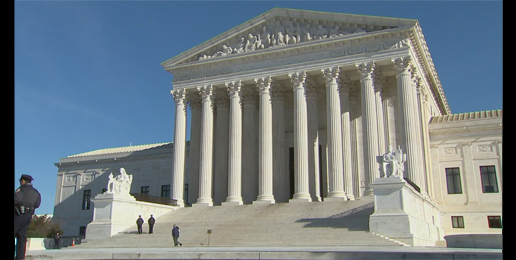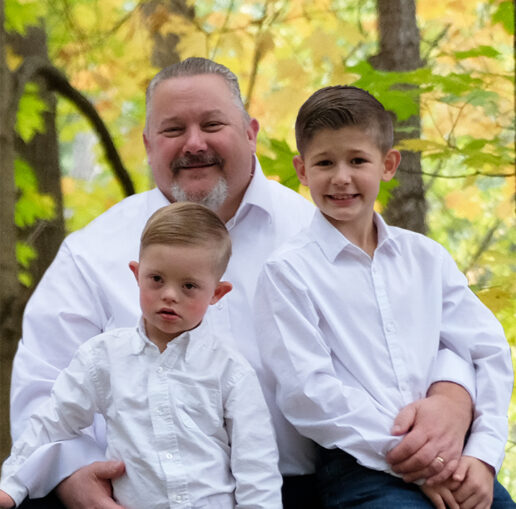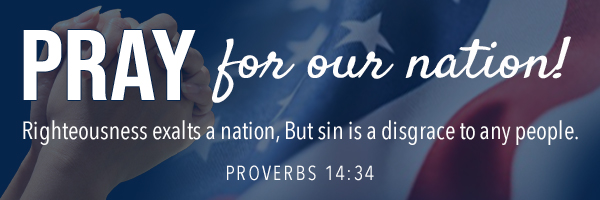
The U.S. Supreme Court’s docket for the October 2025 Term features many of the defining issues confronting American society today — including Second Amendment rights, free speech online, election integrity and redistricting, abortion, presidential immunity, and more.
Illinois Family Institute has filed friend-of-the-court briefs in many of the cases addressing these hot-button issues. The Court will decide all its cases by the end of June 2026. Here are six undecided cases to watch, and what they mean for the future of our civil liberties.
Chiles v. Salazar
The Facts: In 2019, Colorado enacted the Minor Conversion Therapy Law (MCTL) — a measure that forbids licensed mental health professionals from helping minors who wish to overcome unwanted same-sex attraction or gender confusion. In essence, the law criminalizes faith-based counseling and censors conversations rooted in biological and biblical truth.
Colorado-licensed counselor Kaley Chiles is challenging this oppressive law, arguing that it violates her First Amendment right to free speech. The law forbids licensed counselors like her from having open, client-directed conversations with minors who voluntarily seek help to change thoughts, feelings, or behaviors related to sexual orientation or gender identity.
The Argument: In a press statement, Alliance Defending Freedom Chief Legal Counsel Jim Campbell asserts:
“Colorado’s law allows counselors to push kids down the path of gender transition, often leading to harmful drugs and surgeries. But it doesn’t allow compassionate counselors like Kaley to talk with kids to help them accept their bodies—even when that is their express goal and they have voluntarily sought Kaley out for advice. This is censorship, pure and simple. Colorado is picking sides, promoting gender ideology, and banning conversations it dislikes. We are hopeful the Supreme Court will uphold counselors’ freedom of speech and young people’s ability to set their own goals of living at peace with their bodies.”
Bottom Line: Christians Americans should never have their professional speech censored simply because the government dislikes their viewpoint. In this case, the U.S. Supreme Court has an opportunity to remind state officials that the Constitution means what it says — and that the freedom of speech belongs to every citizen, not to the government to redefine or restrict.
____________________
Littlejohn v. School Board of Leon County
The Facts: In 2021, January and Jeffrey Littlejohn, parents of a 13-year-old girl, discovered that officials at Deer Lake Middle School in Leon County (Florida) had secretly met with their daughter to discuss her so-called “gender identity.” Without their knowledge or consent, school staff drafted a “Student Support Plan” allowing her to adopt a new name, “they/them” pronouns, and use opposite-sex restrooms—even on overnight trips. Shockingly, teachers were instructed to deceive the parents by using her legal name and “she/her” pronouns only in communications home, deliberately concealing the truth.
The Littlejohns filed suit against the school board, superintendent, and principal, alleging violations of their fundamental parental rights — including the right to direct their child’s upbringing, make medical and mental health decisions, and preserve family privacy. Their case seeks injunctive relief, declaratory judgment, and damages for the school’s unlawful interference.
The Argument: In an amicus brief, Alliance Defending Freedom Senior Counsel Vincent Wagner argues:
“Parents have a fundamental right to direct the upbringing, education, and health care of their children. Leon County Schools violated this right by using cross-gender pronouns and a different name for a student—a controversial psychosocial intervention—against her parents’ express wishes. As we explain in our brief, the decisions in this case so far have not recognized the long history and tradition supporting parents’ right to make crucial mental health decisions like this for their children. Parents know their children best, and they shouldn’t be kept in the dark about their children’s wellbeing. We are urging the full 11th Circuit to rehear this case and reverse the lower court’s decision for its failure to respect parents’ constitutionally protected freedom to make the best decisions for their own kids.”
See the IFI amici curie brief we filed with the Court HERE.
Bottom Line: The Littlejohn case exposes a growing trend of schools usurping parental authority in life-altering decisions about their children’s so-called “gender identity.” A ruling by the U.S. Supreme Court—whether in Littlejohn or Foote v. Ludlow—could set a nationwide precedent affirming that parents, not schools, hold the ultimate authority over their children’s upbringing, identity, and moral formation.
For Christian parents, this battle is about far more than policy — it’s about stewardship. God has entrusted mothers and fathers with the sacred responsibility to train up their children in truth (Proverbs 22:6). When schools hide information or promote gender confusion behind parents’ backs, they’re not just violating constitutional rights; they’re rebelling against God’s design for the family. Parents must remain vigilant, prayerful, and engaged, ensuring that truth and love—not ideology—guide their children’s hearts and minds.
____________________
Cathy Miller v. Civil Rights Department
The Facts: Evangelical Christian and bakery owner Catherine “Cathy” Miller views her business as a ministry — a way to honor God through the work of her hands. In 2017, when a homosexual couple requested a custom wedding cake, she politely declined, explaining that her faith compels her to uphold God’s design for marriage. Miller offered to provide other baked goods and even referred the couple to another bakery, but her courtesy was met with a lawsuit. The couple filed a complaint under California’s Unruh Civil Rights Act, accusing her of discrimination for living out her biblical convictions.
The Argument: Miller argues that the state’s investigation reveals unconstitutional hostility toward her sincerely held religious beliefs, in direct violation of the Free Exercise Clause. She points to Masterpiece Cakeshop, Ltd. v. Colorado Civil Rights Commission (2018), in which the U.S. Supreme Court affirmed that government officials must remain neutral and may not display animus toward religious convictions.
Miller further contends that California’s aggressive probe has chilled her ability to operate her bakery as a faith-based ministry. She regards her custom cake designs as expressive works of art—manifestations of her conviction that marriage is a sacred covenant between one man and one woman. The investigation, she argues, effectively punishes her for living out her faith, forcing her to choose between obedience to God and the survival of her livelihood.
See the IFI amici curie brief we filed with the Court HERE.
Bottom Line: The case strikes at the heart of a growing constitutional conflict — the tension between a Christian’s First Amendment right to freely exercise their faith and the state’s power to enforce anti-discrimination laws. A victory for Miller could broaden the scope of Masterpiece Cakeshop, extending its protections against religious hostility beyond courtroom rulings to include administrative investigations and enforcement actions.
With more than 20 states — including Illinois and cities like Chicago — enforcing anti-discrimination statutes that encompass “sexual orientation” and “gender identity,” the outcome of this case could shape how governments nationwide balance civil rights enforcement with constitutional safeguards. At stake is nothing less than government neutrality toward religion — the cornerstone of America’s First Amendment guarantees.
____________________
Hecox v. Little
Facts: Lead plaintiff Lindsay Hecox, a biological male student and transgender activist at Boise State University, sought to compete on the women’s track team but was barred under Idaho’s Fairness in Women’s Sports Act. This landmark law — the first in the nation to categorically protect female athletics from male participation at every school level — was designed to preserve fairness and safety in women’s sports. Hecox claims the law violates the Equal Protection Clause of the Fourteenth Amendment by discriminating based on sex and transgender status.
The Argument: ADF Senior Counsel and Vice President of Appellate Advocacy John Bursch explains:
“Women and girls deserve to compete on a level playing field. But activists continue their quest to erase differences between men and women by forcing schools to allow men to compete in women’s sports. This contradicts biological reality and common sense. That’s why we are pleased the district court rejected the attempt to end this case before it is argued before the U.S. Supreme Court. The Constitution and Title IX allow states to protect women and girls by reserving women’s sports for women. We are eager to soon stand alongside the state of Idaho in arguing this case before the high court and urging it to listen to the countless girls across the country speaking out on this issue and restore fairness and safety for female athletes.”
See the IFI amici curie brief we filed with the Court HERE.
____________________
Foote v. Ludlow School Committee
Facts: On April 12, 2022, four parents filed suit in the U.S. District Court for the District of Massachusetts against the Ludlow School Committee and several school officials, alleging violations of their Fourteenth Amendment rights to direct the upbringing, education, and care of their children.
The lawsuit contends that the district’s policies enabled secret “social transitions,” effectively usurping parental authority and undermining the family’s constitutional role.
The suit stemmed from incidents in which school staff, acting under the district’s “LGBTQ+ Student Support Protocol”—a policy aligned with Massachusetts Department of Elementary and Secondary Education guidelines—used students’ chosen names and pronouns without parental consent or notification. Staff were instructed to withhold such information unless the student granted permission or a safety concern arose, purportedly to avoid “outing” the child. The parents argue that this policy constitutes unconstitutional interference in parental rights and fosters deliberate deception within the parent-child relationship.
“Parents—not the government—have the fundamental right to direct the upbringing, education, and health care of their children. Mr. Foote and Ms. Silvestri have a moral belief, backed by well-supported scientific opinion, that a so-called gender transition harms children. Parents have unique and intimate knowledge of their own children’s best interests, but the Ludlow School Committee insists it knows better than parents, undermining centuries of tradition, case law, and common sense. We are thankful for these advocates who are urging the Supreme Court to take this case and affirm the constitutional protections parents have in making the best decisions for their children.”
See the IFI amici curie brief we filed with the Court HERE.
Bottom Line: This case represents a landmark moment for parental rights, directly confronting the question of how far schools may go in making life-altering decisions about a child’s so-called “gender identity.” At issue is whether educators can socially affirm a student’s chosen name and pronouns without notifying or obtaining consent from parents. The case tests the scope of parents’ Fourteenth Amendment rights to direct their children’s upbringing, education, and mental-health care — rights firmly established in Meyer v. Nebraska (1923), Pierce v. Society of Sisters (1925), and Troxel v. Granville (2000).
Ludlow’s policy — modeled after Massachusetts’ “LGBTQ+ Student Support Protocol” — instructs school staff to conceal a student’s gender identity from parents unless the child consents. That’s not protection; it’s deception. The plaintiffs argue that such secrecy unconstitutionally interferes with parental authority and undermines the family bond. A ruling in their favor could reaffirm a vital truth: parents, not schools, bear the primary responsibility before God and under the U.S. Constitution for their children’s care and moral formation.
A Call to Prayer
As our U.S. Supreme Court Justices consider these and other cases before them in this term, we must commit ourselves to prayer. We must pray for the sanctity of human life, for the freedom to live and work according to our faith, and for the God-given rights of parents to direct the upbringing of their children. Let us pray that the Justices will seek wisdom from above (James 1:5), that their hearts will be guided by truth and justice, and that they will have the courage to uphold the Constitution’s original intent.
We must also pray for a spiritual awakening across our nation — that Americans will once again cherish life as sacred, honor the family as God designed it, and defend the liberty purchased at such great cost. May God raise up leaders who fear Him more than man, protectors of both faith and freedom, and parents who stand firm in truth and love for their children. May we all be salt and light to our culture as we seek to overcome evil with good.






















